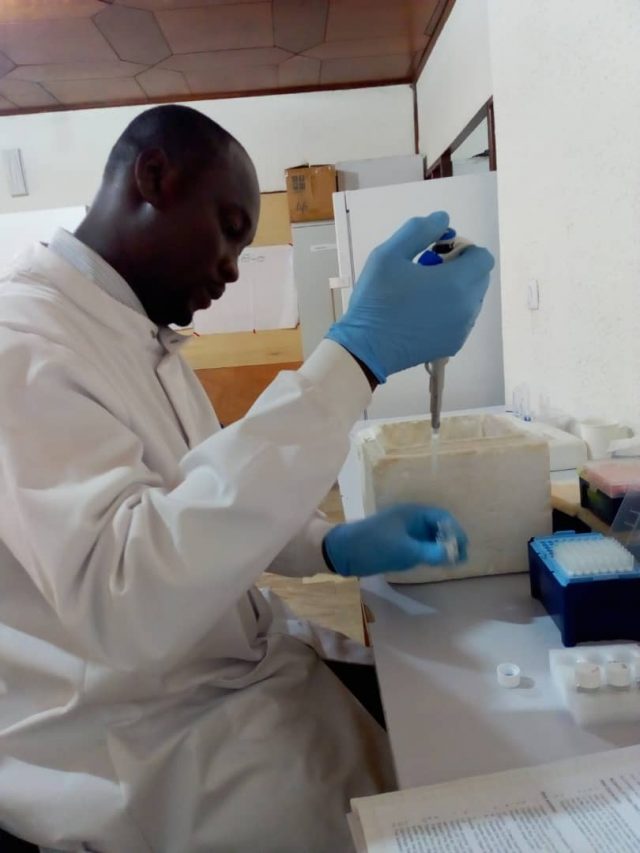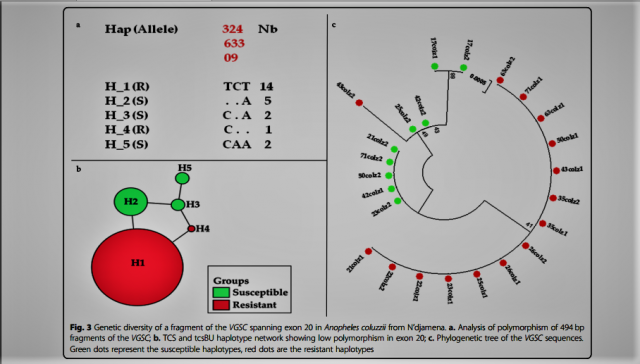Dr Amen Fadel’s contributions in the pre-elimination of Malaria
After 4 years of hard work, Amen Fadel has brilliantly defended his thesis at the university of Buea. He provided evidence of mosquito’s resistance to insecticides in the far north, savannah and sahel geo-ecological zones of Cameroon and Chad.
On May 13, 2021, the Centre for Research in Infectious Diseases (CRID) celebrated Amen Nakebang Fadel, a PhD student who became the 4th PhD holder or Doctor trained by CRID. This son of Chad defended his thesis in cellular and molecular parasitology at the University of Buea, Cameroon on the topic « Escalated insecticide resistance in the major malaria vector Anopheles coluzzii from the Central African Sahel and Guinea savannah regions is driven by common metabolic resistance genes ».

Dr Amen Fadel noted that, the reason he chose this field of work, was primarily based on the fact that, information on the composition of malaria vector in the far north, savannah and Sahel geo-ecological zones of Cameroon and Chad is grossly lacking. The aim pursued here was to know if the major malaria vectors are the same in these regions and if the molecular mechanisms of resistance are similar. Dr Fadel remains convince that such information will facilitate malaria pre-elimination and cross-border collaboration between National Malaria Control Programs. His study has provided evidence of high resistance to pyrethroid and DDT in the major malaria vector, Anopheles coluzzii from both Cameroon and Chad, which may pose a serious threat to malaria control using pyrethroid bed nets and DDT.
 This work is the first in-depth investigation of metabolic resistance mechanisms using genome-wide transcriptional analyses of the vector population from both countries. This study highlights the role of a major malaria vector, Anopheles coluzzii in northern Cameroon and Chad in malaria transmission, its insecticide resistance profile and the possible molecular mechanisms driving the resistance in the field. Results of this study have generated primary data on malaria which can be used by the National Malaria Control Program in Cameroon and Chad to choose the best alternative for malaria vector control tools in the context of insecticide resistance escalation. As of his thesis, eliminating malaria in Africa and across the world through knowledge of malaria vectors remains Dr Fadel’s ultimate goal.
This work is the first in-depth investigation of metabolic resistance mechanisms using genome-wide transcriptional analyses of the vector population from both countries. This study highlights the role of a major malaria vector, Anopheles coluzzii in northern Cameroon and Chad in malaria transmission, its insecticide resistance profile and the possible molecular mechanisms driving the resistance in the field. Results of this study have generated primary data on malaria which can be used by the National Malaria Control Program in Cameroon and Chad to choose the best alternative for malaria vector control tools in the context of insecticide resistance escalation. As of his thesis, eliminating malaria in Africa and across the world through knowledge of malaria vectors remains Dr Fadel’s ultimate goal.
CRID hosted this research project, provided training, guidance, enthusiastic encouragement, technical and financial supports and capacity building. This achievement would not have been possible without the contribution of CRID. “Thanks a lot” he said.





